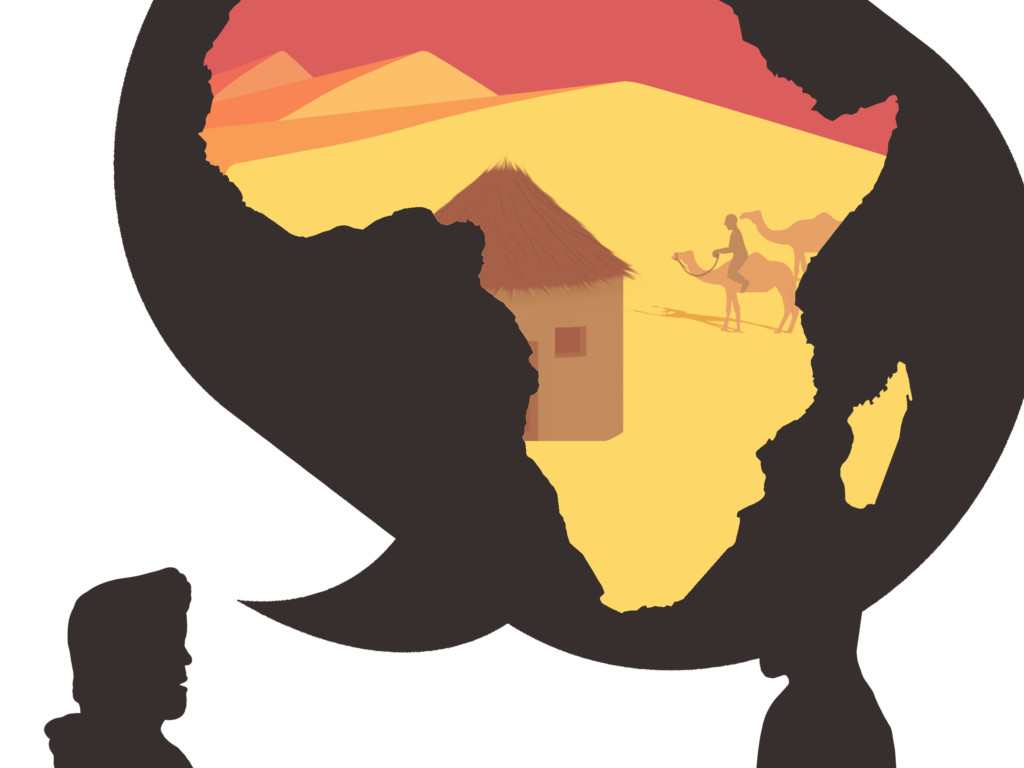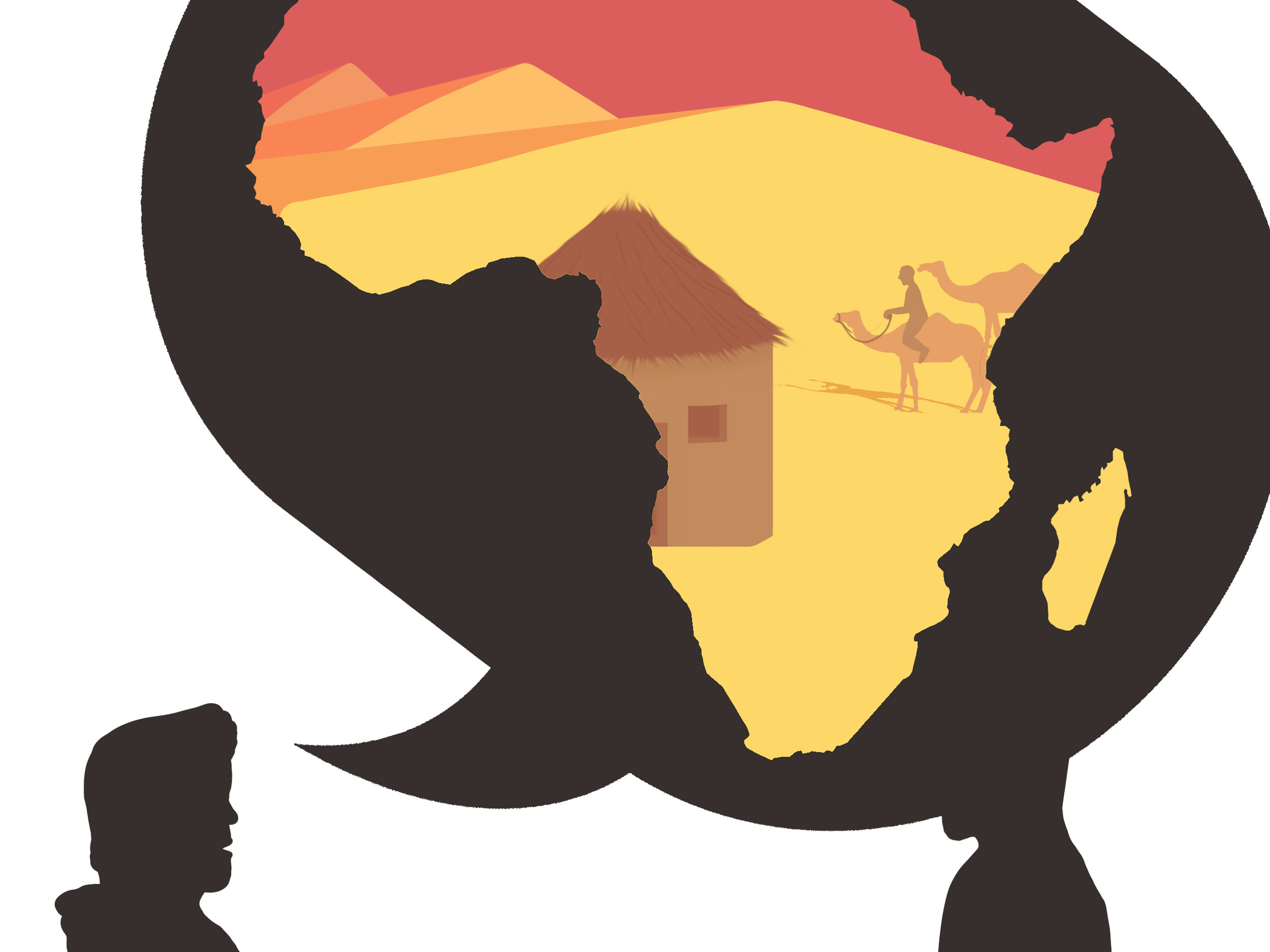When talking to Africans, the first thing is to look them straight in the eye, and mouth every word carefully and in slow cadences to make sure they can understand you. Make sure your every word drips with the sympathy that they came from a far country. Understand that the only reason they are here, far from choice, is the pursuit of refuge, peace, and happiness — everything they previously didn’t have. Keep in mind that theirs not a quest for exploration, but for western education and something tangible to take back to their war-ridden tribes and villages.
Let your interactions be governed by the assumption that they are still learning to speak English, so to make them comfortable, get ready to marvel at their exotic accents. Use words like “mother-land”, “ancestors”, “tribe”, and “Shaka Zulu” in your polite exchange. Ask them if they can speak “click-click” or how to say something funny in Swahili. They always love this. If they show some average intelligence or speak English fluently, don’t hesitate to ask them which American international school they went to.
To establish a good rapport, politely ask them which country they came from. Always follow up this question with whether they’ve met your Nigerian friend Olu, Richard from Zambia or any of the other African gardeners and janitors. They have probably run into each other at some point during their daily walk to collect water from the Congo. It’s a small world, afterall.
Whenever you meet an African, explain to them about your undying wish to see lions, cheetahs, elephants, and zebras. Of course, never mention that you have zoos and forests in your own country. Also mention your unquenchable thirst to drink from natural wells, see safaris, cross deserts, hike highlands, and walk jungles. Every African should understand these things.
Furthermore, get ready to explain your unparalleled knowledge of African politics. Remind them how Mandela made a great sacrifice by proposing unity for blacks and whites. He was a smart guy. Occasionally juxtapose that story with the ever disappointing Gaddafi, Mugabe, and Omar Al-Bashir. At this point, you’ve won our delicate African hearts.
On a lighter note, speak about much you loved “Blood Diamond,” how you cried watching “Beasts of No Nation,” and how it’s great that “Hotel Rwanda” got three Oscar nominations. Every African has watched these movies. Let your face show that you sympathize with the films’ atrocities and sad realities. Explain how watching them made you reach an intuitive grasp of reality that made you never ever complain again.
On the same note, talk about your family’s great initiative which donates clothes to Africa. While doing this, notice the gratefulness ooze out of their faces as they remember the Louis Vuitton boots and prada purse your aunt donated last year.
Moreover, show the African that you are current and caught up with their affairs. Do this by mentioning corruption, ebola, poverty, aids, lack of electricity, apartheid, and Boko Haram. Enlighten them on corruption, bad leaders, climate change, and the Chinese plan to colonize Africa. To this end, you’ve created perfect ground for your liberal rhetoric to flourish and have demonstrated a superior understanding of the African experience.
Next, remember to bring up the two and only African novels ever written: “Things Fall Apart,” and “Cry, The Beloved Country.” Tell them how these books emancipated you, got you jamming to Afro beats, and almost made you get dreadlocks. A perfect recipe for a strong ancestral connection to the motherland.
Finally, close up by asking them to bring you one of their Dashikis, pyramid keychains, or African-print pants on their next trip. And before you part, instead of a boring phrase like “goodbye” or “see you later”, say “Ubuntu,” “Wakanda forever,” or their favorite, “Hakuna Matata.”


